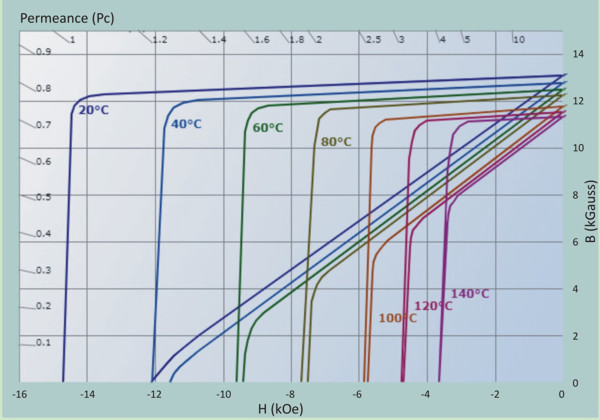Magnetic circuit
A permanent magnet is often used in a magnetic circuit consisting of the magnet and pole shoes from a magnetically soft material, most frequently iron. This will ensure the optimum shaping of the poles and the air gap.
The calculation of a combined magnetic circuit is quite complicated. It is based on the application of the Biot-Savart principle and the magnetic flux conservation law. In the case of the circuit in Fig.3 the above-mentioned principles can be formulated as the equation
Hm . lm = g . Hg .lg
(4)
Bm . Am = s . Bg .Ag
(5)
| where: | Hm, Bm field intensity or magnet induction |
| lm, Am magnet length or cross-section | |
| Hg, Bg field intensity or gap induction | |
| lg, Ag gap length or cross-section | |
| g reluctance coefficient | |
| s escape coefficient |
The coefficient g expresses the magnetic resistance of all magnetically soft and non-magnetic parts of the circuit (e.g. contact surfaces). In a high-quality circuit its value approaches 1. The coefficient s, which expresses the degree of escape of the magnetic flux from the gap, cannot be precisely determined due to a lack of suitable analytical calculation methods. In general, the procedure involves numerical methods during which the circuit is divided into a number of areas with different working points.


